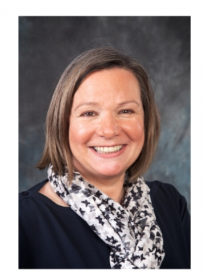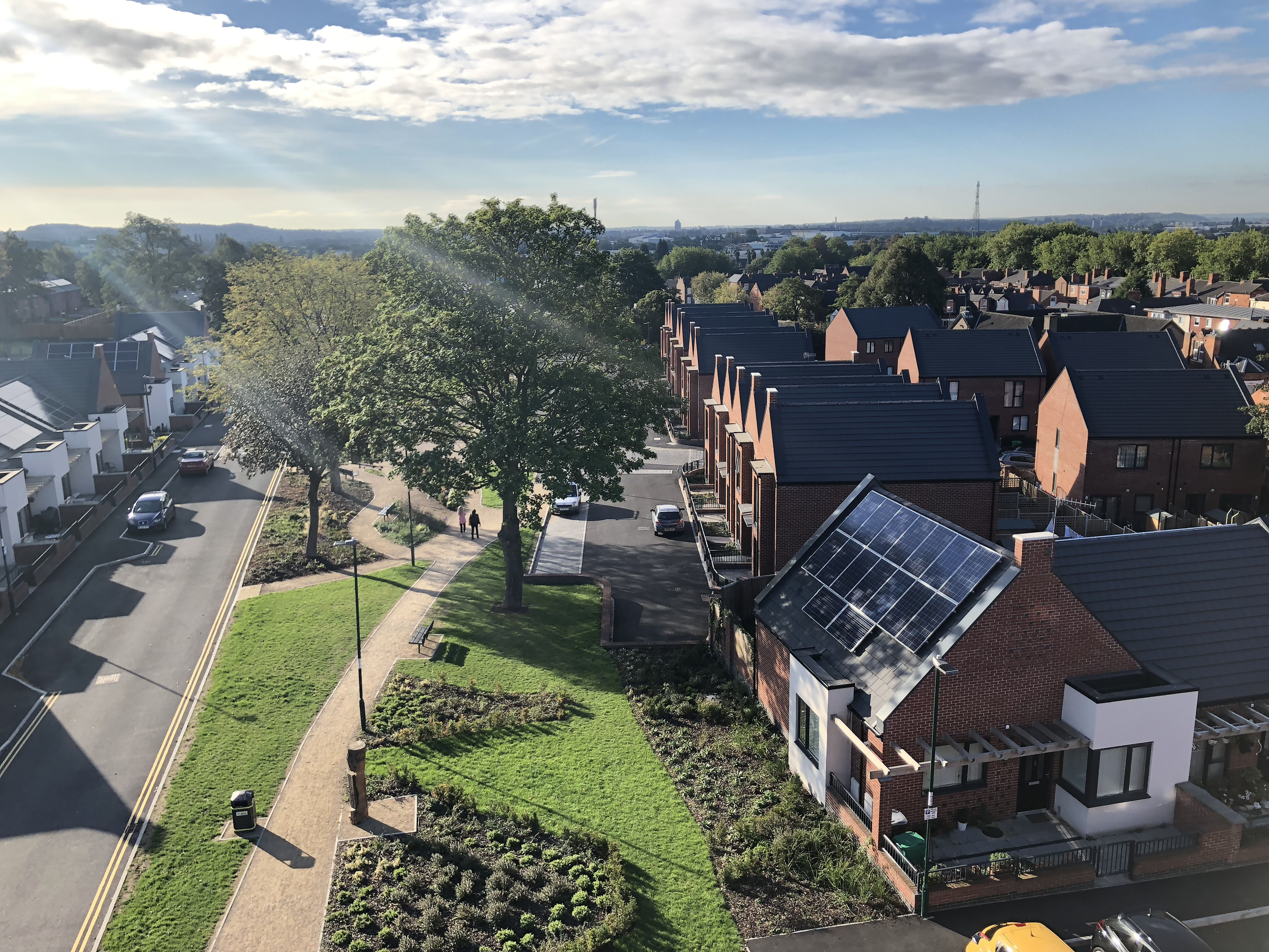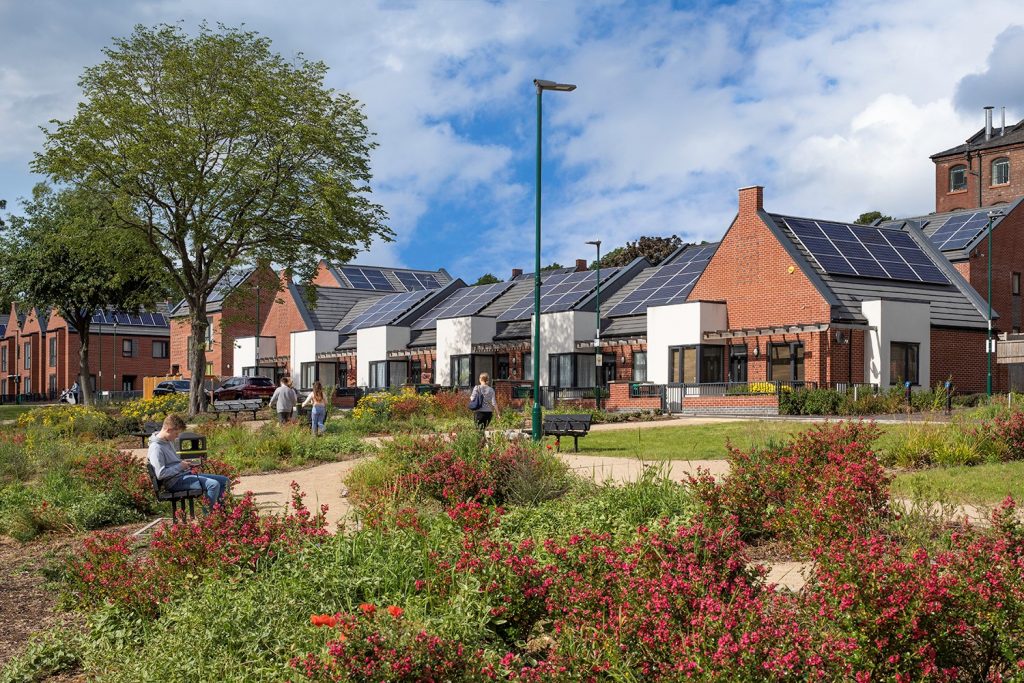How are the Council working to build more council and social homes in Nottingham? Where will the houses be built, and what obstacles do we face?
Hear from Councillor Linda Woodings, Portfolio Holder for Planning, Housing and Heritage, on her vision for housing in Nottingham

Our ambition is to build or buy 1,000 council or social homes by the end of 2023. That’s part of our wider plans to develop around 4000 homes total in Nottingham in this period. Council housing is the most wanted form of housing in the City and we need to do our best to try and meet that demand.
What kind of council or social homes will be built?
Our biggest need is for two and three bed family homes, so we plan to build lots of these. We also know that we need a variety of housing – including sheltered / supported housing for older or less able people – alongside our partners Nottingham City Homes, we also completed a number of specialist homes and bungalows for older people such as at Winwood Heights in Sherwood.
Also, in certain parts of the city there’s a requirement for smaller homes, such as apartments, and starter homes for couples and single people. It’s important we deliver housing that each area needs in the city as well.
Nottingham has an ambitious target to get to carbon neutral by 2028 – how will the new homes help us to meet this?
No small task – this is going to be incredibly challenging. Currently we’re developing a plan looking at how our new council houses can meet high standards of energy efficiency. We’re also looking at ways of improving our existing housing stock as well. We want everyone to live in warm homes designed to keep people’s fuel bills as low as possible.
Our new Local Plan policy means that we can also ask private house builders in Nottingham to build their homes to a similar green standard and we’re developing a more detailed policy specifying what sort of measures we want to be included in any new builds.
We would love to see more solar panels going up on new homes – we currently have over 4000 on existing council houses, but unfortunately the government has cut funding for solar panels.

In what areas of the city will we see developments particularly?
We have firmed up plans at the moment to build in The Meadows, Clifton, Basford, Bestwood and Bilborough, and lots more schemes in the planning stages. We have to look to build where we have available land – a rare commodity in a city with such tight boundaries.
What difficulties are there in building new council or social housing?
There are a number of challenges, but by far the biggest is the Right to Buy scheme which allows council housing tenants to buy properties at a steep discount. We have had the situation where we moved a tenant into a newly completed council home, and they were able to immediately buy it from us for less than it cost us to build.
We have a huge demand for social housing in Nottingham, but Right to Buy strips our stock – in 2018 we lost 436 homes. We know that 40% of the houses that have been purchased under Right to Buy are now in the hands of private landlords, instead of providing stable long-term homes for families. We continue to call on the government to keep their promise to urgently review Right to Buy.
We also have less space to build than they do in the county. As a result, we build council houses on smaller scales – in groups of 10 or 20 – not achieving the economies of scale that we would if we could build hundreds at once.
We often build on brownfields sites, which come with their own challenges – such as contamination or flood risk, which we have to undertake work to mitigate. This can make the price per home more expensive.
But as well as building new homes, we’re also running a programme to buy back 320 ex-council properties and bring them back up to our standards. We are looking for good value former council properties that are available with vacant possession.

Moving away from council and social housing – the City Council wants to develop 4000 homes by the end of 2023 – what kind of homes will they be and where?
We need a big mix of types of housing, to help people move up the housing ladder and attract all kinds of people to live in the city.
We want council homes, affordable homes, aspirational homes – as we try to attract investment and prosperity to the city – and flats to enable city centre living and a vibrant city centre.
Private house builders will deliver many of these projects, with the Council seeking to influence and shape plans through our local planning policy.
Many apartment blocks are going up across the city – both for students and non-students – reflecting our lack of space and a need for small, affordable homes. Student flats, which are built via private developers rather than the Council, are in the city’s interest because they help to discourage shared houses in residential neighbourhoods, mitigating problems like noise, disruption, large amounts of waste and loss of community identity.
